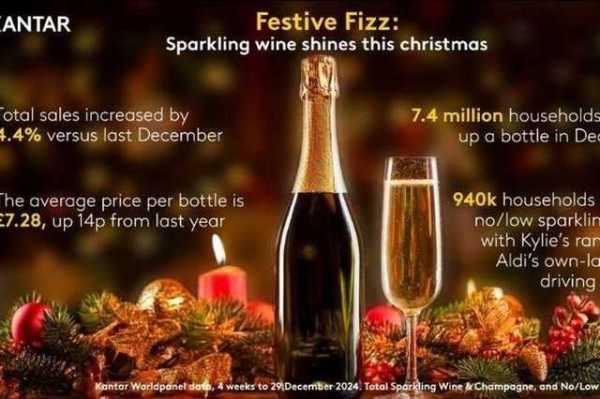
Despite a surge in grocery price inflation, consumers made December the busiest month for since the pre-lockdown rush in March 2020, new figures reveal.
The average household splashed out a record £460 on take-home groceries this as supermarket inflation jumped from November’s 2.6% to 3.7% – its highest level since March, according to analysts Kantar.
Households made nearly 17 separate trips to the supermarket last month. Grocery sales surpassed £13 billion over the four weeks for the first time ever, with prices rising fastest across products such as chilled smoothies and juices, chocolate, confectionery and skincare, while falling for dog food, cat food and household paper products.
Fraser McKevitt, head of retail and consumer insight at Kantar, said: "In contrast to reports of disappointing footfall across the rest of the high street, it was a very different story in the of grocery. As anticipated, Monday 23 December was the most popular shopping day of the year, with sales a whopping 30% higher than any other day during 2024."
Sales growth for branded goods accelerated to 4.2% as shoppers indulged in festive treats, while premium own-label lines saw a significant jump of 14.6%. Sales of sparkling wine and Champagne grew by 4.4% to a total of £187 million across the month, but 11% of the population opted for a no or low alcohol drink, up from less than 10% last year.
Mr McKevitt commented: "We’ve all got our own festive favourites, but it seems that age differences come into play too. Under-45s are far more likely to pick up a sausage roll, and they also go for a slightly more Mediterranean spin, being the most likely to reach for panettone as well as antipasti and party food as part of their Christmas shopping.
"Meanwhile, over-45s account for the majority of Christmas cake and fortified wine sales. The seasonal biscuit, however, knows no bounds, appealing across the generations."
, Britain’s biggest supermarket chain, enjoyed a 5% boost in sales during the 12 weeks leading up to December 29, with its market share jumping by 0.8 percentage points – the largest gain among supermarkets – to reach 28.5%. Sainsbury’s notched up its highest market share since December 2019 at 16%, thanks to a 3.5% growth in sales that outstripped overall market performance.
saw a modest increase in sales by 0.4%, holding an 8.6% market share, while Asda's share now stands at 12.5%. Budget-friendly stores and hit record high Christmas shares of 7.3% and 10% respectively, with Lidl achieving the fastest growth in customer numbers as its till transactions surged by 6.6%.
maintained a steady market share of 4.6%, with a spending rise of 2.1%, and ’s food and drink sector saw an impressive 8.7% increase in sales. Online grocery shopping hit a new peak with £1.6 billion spent in December, aiding Ocado in ramping up its sales by 9.6% over the 12-week period, which bumped up its market share to 1.8%.